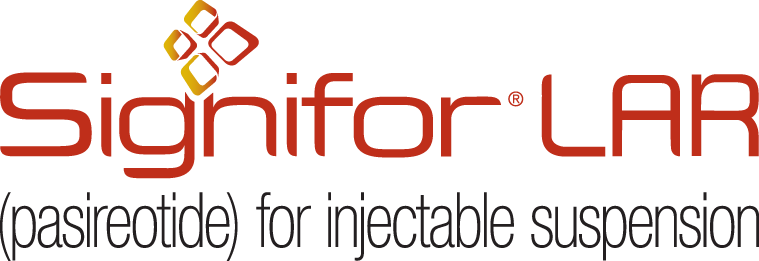Acromegaly is a hormonal disorder that generally develops when your pituitary gland produces too much growth hormone (GH) that then causes your liver to overproduce the hormone insulin-like growth factor 1 (IGF-1). This overproduction leads to changes in the body’s growth and development.
 Signifor
Signifor

For patient support, please call: 1-888-855-7273

